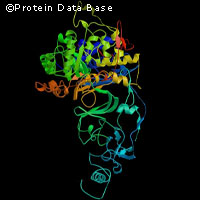Research discovers origins of stomach ulcer bacteria
An international team of scientists has discovered that the bacteria causing stomach ulcers have been bugging human beings ever since they migrated from Africa some 60,000 years ago. The findings, which are published in the Journal Nature, are also expected to shed light on human migration patterns. Over half of all humans are infected by Helicobacter pylori (H. pylori), a bacterium that can cause peptic ulcers and is a risk factor for stomach cancer. Led by scientists from the UK and Germany, the team compared DNA sequence patterns of bacteria and its hosts. By using computer simulations they showed how the bacteria spread out of Africa 58,000 years ago and were dispersed around the world. The team also showed that the genetic differences in the bacteria mirrored those that occurred in human populations as they left Africa. For example, human DNA analysis shows genetic variations increased as human populations moved further away from Eastern Africa. The new research finds exactly the same genetic distribution patterns for the bacteria. This means that the H. pylori accompanied human populations as they migrated across the world. 'Humans and this ulcer-causing bacterium have been intimately linked for the last 60,000 years,' said Francois Balloux of the University of Cambridge, one of the lead scientists in the project. 'The research not only shows the likelihood that for 10s of thousands of years our ancestors have been suffering the effects of this bacteria but it also opens up new possibilities for understanding early human migration. 'By showing that Helicobacter pylori emerged from Africa at the same time as early humans it makes it easier to examine some of the controversial questions about human migration. For example we could use our understanding of the bacteria's spread to gauge poorly understood human population shifts in Europe, Africa and Asia,' he added. Further research is now needed to determine why stomach ulcers only started occurring in modern times. Many believe that ulcers are caused by stress and lifestyle. 'It begs the question - if Helicobacter has been in humans ever since we have been out of Africa, why have ulcers only arrived recently, around the time of the industrial revolution?' asks Professor John Atherton, professor of gastroenterology at the University of Nottingham. The international research collaboration was funded by the German Federal Ministry for Education and Research (BMBF), the Biotechnology and Biological Sciences Research Council, the Swedish Research Council and Lund University Hospital.
Countries
Germany, Spain, France, Sweden, United Kingdom



